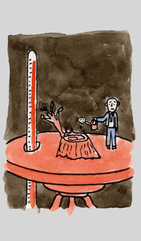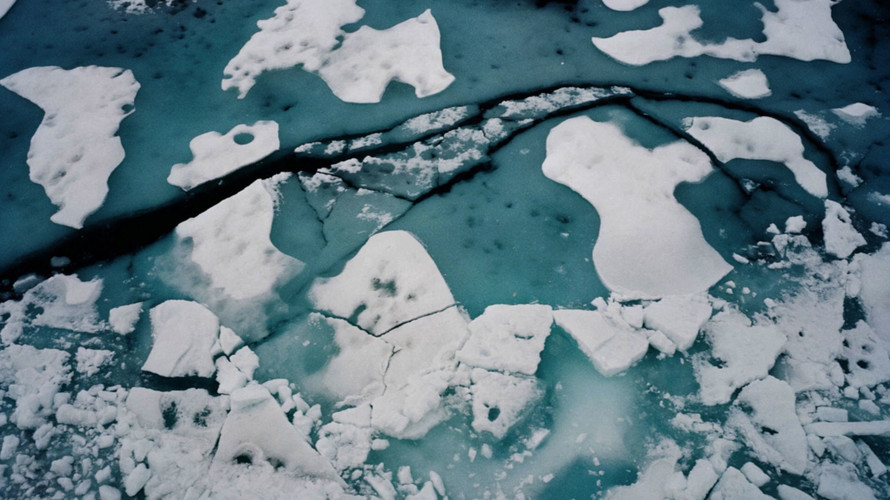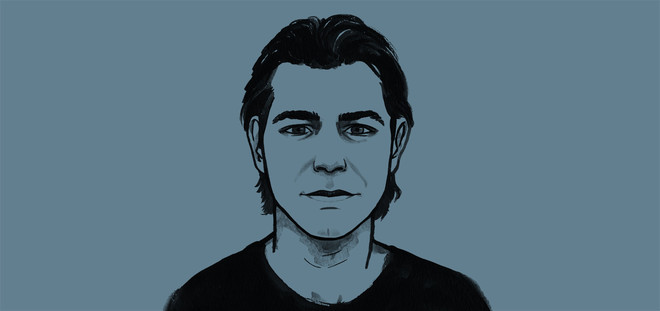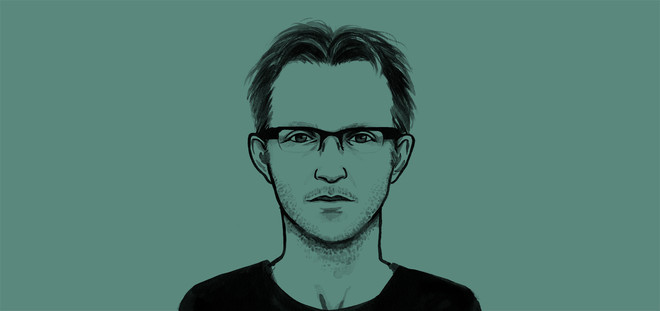The climate movement has always had a hefty to-do list. Tasks include: overhaul the economy, clean up consumption, fight every conceivable form of ignorance and denial.
Now there’s a new one: fight everything Donald Trump stands for.
The new US president-elect is a climate denier and friend of the coal industry and says he’ll withdraw from the Paris climate accord. He also intends to dismantle Barack Obama’s sensible environmental policies and reverse the climate movement’s recent victories. With a Republican majority in the House and Senate, these and other plans stand a chance of success.
Meanwhile, Trump will continue to deny climate change for the next four years. Or he might occasionally say something accurate about it – bullshitter that he is, who knows? The national media will likely continue to provide him with a megaphone for spreading lies about climate change, making themselves complicit in the confusion and apathy that will follow. Deniers around the world will feel encouraged in their delusions.
Peaceful protests by citizens and climate activists will likely meet with a harsh response under Trump, as they recently have in North Dakota. A number of journalists have also been arrested this year at climate protests, and there’s no reason to think Trump will do anything to stop that.
His victory is a catastrophe for the climate.
Things could get ugly
What I’m most worried about, though, is something not often associated with global warming: the misogyny and racism that Trump has exploited to win the election.
Why? Because while global warming is bound by the laws of physics, the state of society will determine our response. A world blighted by nationalism, isolationism, racism, misogyny, and xenophobia won’t react peacefully to climate disruption. Quite the contrary.
Climate change and politicians like Trump have a key feature in common. They pit people against each other. Just as Trump and other demagogues play one group off against another, global warming is likely to widen the gap between the haves and the have-nots. On one side, the well-off will entrench themselves and attempt to adapt to a hotter climate; on the other, vulnerable poor and displaced populations will suffer, often with no hope in sight.
The dream of a sustainable world has always been linked to the dream of freedom and equality, just as racism and climate change have always been connected
This is my climate dystopia: a world with more walls, more barbed wire, more refugees, and more military interventions in places where drought, floods, and poverty cause migration, conflict, and radicalization. That’s the climate Trump stands for.
But other scenarios exist. The dream of a sustainable world has always been linked to the dream of freedom and equality, just as racism and climate change have always been connected. In the course of exploiting other people, our ancestors began altering the climate. Coal, oil, and gas, along with exploitation, robbery, and oppression, became the fuels of our economic system. We owe our prosperity to the abuse of people we implicitly or explicitly considered inferior.
Closing the book on the fossil fuel age will raise the prospect of ending this injustice. Further climate disruption will guarantee its continuance. Global warming will rob future generations of the opportunities that come with a stable climate, just as racism, exclusion, and oppression take away equal chances.
There’s one answer to all these forms of injustice: resistance. The struggle against politicians like Trump and the fight against global warming are one and the same. It’s a fight for equal opportunities and connection and against animosity and isolation. Feminism, antiracism, and climate action go hand in hand and strengthen each other.
Trump can’t stop the energy transition
Progressive forces will be more powerful if we combine them. That’s one reason for hope, and there are others. Trump has chosen a disastrous path, as have Wilders in Holland, Orbán in Hungary, Le Pen in France, and other right-wing populist leaders who want to go back in time. But the climate doesn’t care about politicians who pretend we can keep ourselves safe from the big, bad world by shutting our eyes. Climate change confronts us with the connectedness of all people on earth. The worldwide grief, fear, and frustration at Trump’s victory has highlighted that connectedness.
Just as Trump can’t alter the laws of thermodynamics – warming will proceed despite his denial, since more CO2 in the atmosphere will trap more heat – he won’t be able to stop the global energy transition either. It’s already well underway, in places far and wide.
We need to develop a keen eye for racism, oppression, and exclusion in daily life – and the ways words can be used to divide us
Clean technology is getting cheaper all the time, and countries like China and Germany have their own reasons to make the switch. Countless citizens, villages, cooperatives, businesses, and activist organizations are working to build a sustainable world. Over the next four years, they’ll work harder than ever, and they’ll get even better at telling their story. And ultimately that story will win, because it’s a better story, and better stories always win in the end, even if it takes a long time.
Malcolm X said, “The future belongs to those who prepare for it today.” That’s exactly what the climate movement has been doing for years, and it will continue to do so. Climate change will likely cause catastrophes worse than Trump’s election. In that sense, his presidency will serve as an exercise in resilience and perseverance. Trump and his followers can do a lot of damage, but they can’t wreck every worthy plan for the future, not by a long shot.
In the coming years, we need to develop a keen eye not only for observing changes in the weather and their consequences, but also for noticing racism, oppression, and exclusion in daily life – and the ways words can be used to divide us. We’ll have to use our empathy and our voices everywhere. The more climate disruption increases migration and conflict, the louder we’ll have to argue for open borders, open arms, and spare beds.
Just about every progressive commentary on Trump’s victory employs the word “darkness.” Maybe we should view the situation as we would a power blackout in a city. Sometimes there’s looting and fighting, but more often than not, candles are lit and babies are made.
—Translated from Dutch by Laura Martz and Erica Moore
More from The Correspondent:

 Climate Change 101: Our future on a warming planet
Right now, it looks as if life on earth is going to get a lot more uncomfortable, thanks to the effects of global warming. But it’s precisely in periods of great change that our decisions, our actions – and the stories we tell one another – make the biggest difference. In this crash course, we explore why global warming is dangerous and what’s being done to put a stop to it.
Climate Change 101: Our future on a warming planet
Right now, it looks as if life on earth is going to get a lot more uncomfortable, thanks to the effects of global warming. But it’s precisely in periods of great change that our decisions, our actions – and the stories we tell one another – make the biggest difference. In this crash course, we explore why global warming is dangerous and what’s being done to put a stop to it.

 We’re heading into dark times. This is how to be your own light in the Age of Trump
Having studied authoritarian states for over a decade, I would never exaggerate the severity of the threat we now face. But an American kleptocracy is exactly where president-elect Trump and his backers are taking us. That’s why I have a favor to ask you, my fellow Americans.
We’re heading into dark times. This is how to be your own light in the Age of Trump
Having studied authoritarian states for over a decade, I would never exaggerate the severity of the threat we now face. But an American kleptocracy is exactly where president-elect Trump and his backers are taking us. That’s why I have a favor to ask you, my fellow Americans.

 The Trump takeaway: It’s time to pay attention to each other’s realities
Since the election of Donald Trump, there’s been a frenetic search for the culprits. Blame the media! The elites! The polls! We assume, reassuringly but misguidedly, that the new political reality is the fault of everyone but ourselves.
The Trump takeaway: It’s time to pay attention to each other’s realities
Since the election of Donald Trump, there’s been a frenetic search for the culprits. Blame the media! The elites! The polls! We assume, reassuringly but misguidedly, that the new political reality is the fault of everyone but ourselves.

 We have one year to make democracy work in Europe. Or else the Trumps take over
Both Brexit and Donald Trump painfully illustrate the dangerous road that all western democracies have taken: reducing democracy to voting. I propose another system, in an open letter to the President of the European Commission, Jean-Claude Juncker.
We have one year to make democracy work in Europe. Or else the Trumps take over
Both Brexit and Donald Trump painfully illustrate the dangerous road that all western democracies have taken: reducing democracy to voting. I propose another system, in an open letter to the President of the European Commission, Jean-Claude Juncker.



